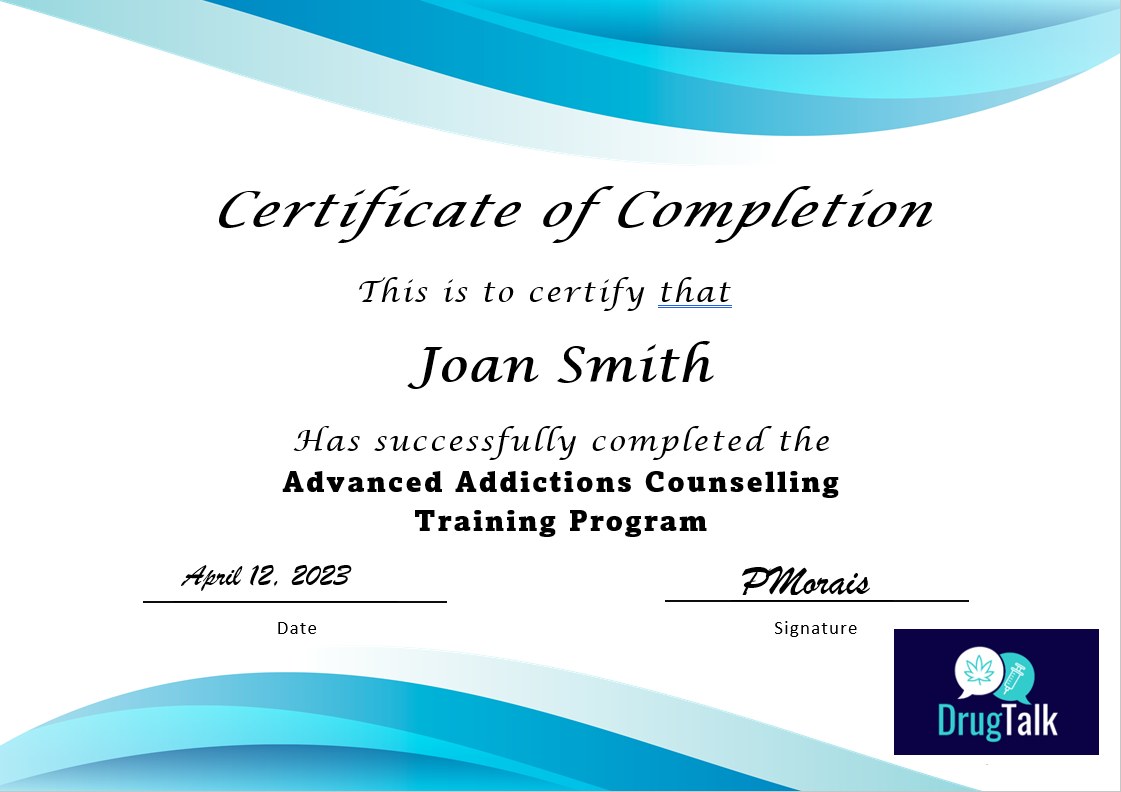COURSE SYNOPSIS
While it may not be apparent at first glance, grief and addiction go hand in hand. People with a serious addiction have either become addicted due to their attempt to escape emotional pain (which in many cases is grief), or they have suffered so many losses due to their addiction that they have enormous grief issues. Many have lost their jobs, their families, their health, their money, and their self-respect, as well as their hopes and dreams. Counsellors working with clients who have grieving issues, whether or not they have an addiction, will benefit from this course because they will not only learn about the complex relationship people in addiction have with grief, but they will also learn much about the grieving process in general.
In this course, you will be introduced to what is arguably the most well-known grieving model to explain grief: Elisabeth Kubler-Ross's Five Stages of Grief. This highly popular model is used by counsellors around the world, since it applies to everyone regardless of culture or race.
This course is suitable for counsellors who simply want to learn about grief, as well as those who wish to learn how grief relates to addiction and recovery.
Each Course Includes
Downloadable Pdf's

video tutorials

Online videos are included with every course. Some courses include more than one video.
quizzes

Quizzes designed to test your understanding
2
Learning Objectives For This Course
At the end of this course, participants will:
- Gain a clear understanding about why grieving is an important concept in recovery from addiction;
- Gain insight into the complexity of the relationship addicts have with their grief;
- Be able to name the stages of grief and explain each one;
- Gain proficiency in working with their clients who are experiencing grief;
- Acquire some valuable techniques about how to help their clients move through their grieving process.

Additional Details...
Schedule
The course is pre-recorded and delivered online allowing you to start and finish according to your own schedule.
Flexible Program
Take only one course or register for a complete program. We have a full curriculum of great courses to choose from. Pick one or take them all! The choice is yours.
Great Resources
All courses include a video which can be purchased as a resource for your clinic or practice. Check out our great selection of powerful videos to bulk up your library of resources.
Sample of course material
Grief In Addiction
The subject of grief is included in this series of courses on addictions counselling for two reasons. The first is because addicts who let go of their using lifestyles will be grieving a number of different elements: the loss of a familiar lifestyle, the loss of friends, the loss of old patterns, the loss of “special using moments” (like a beer after work, or the first cigarette with the first coffee in the morning), etc. As they let go of these things, they may get immersed in grief and need support. People who’ve developed an addiction have a limited ability to feel their emotions and have a deeply ingrained discomfort with painful feelings. Their “go-to strategy” to deal with uncomfortable feelings is to use, so counsellors need to be well-prepared to counsel them on grief issues when the need arises to prevent any relapses.
The other reason is that many people became addicted because they sought to escape emotional pain. Since grief is one of the most painful emotions to endure, counsellors need to be able to work with grieving clients and understand how their grief has played a role in the development of their addiction.
Normally when discussing grief, we are referring to the loss, either through death or end of a relationship, of someone close to us. Most addicts in recovery have some grieving issues to work through. When addicts are faced with the loss of someone they care about, they inevitably turn to using as a way to cope with their pain. Emotions suppressed in addiction do not simply dissipate. Rather, they are suppressed, so when clients stop medicating them away, they can resurface.
A key principle for you to understand as a counsellor is that emotions are meant to be felt. Clients who were numbed by addiction need to regain the ability to feel and learn to live with feelings in a healthy way. Death and loss are ....
Take this course individually or as part of our
Advanced Addiction Training Program


